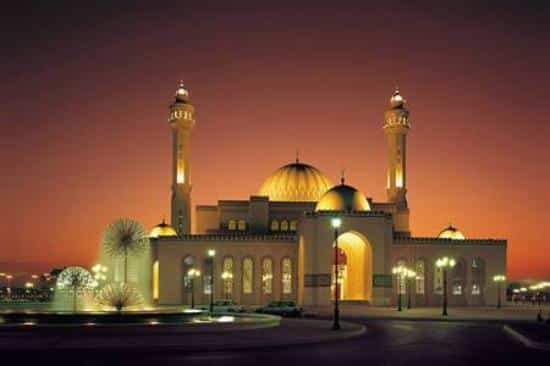The Ministry of Justice, Islamic Affairs and Endowments decided to gradually open mosques, by allowing the performance of the Fajr (dawn) prayers daily, starting from Friday 28 August.
The move follows the announcement of the Supreme Council for Islamic Affairs (SCIA) on the gradual reopening of mosques and resumption of collective worship and religious gatherings, taking into account all necessary precautionary measures in force in the kingdom to limit the spread of the novel coronavirus (COVID-19).
Mosques all over the kingdom will be opened for men to perform Fajr prayers only, under the supervision of the relevant endowments directorate, and those that fail to meet the organisational and health requirements will be closed.
The Friday prayer will remain suspended, except for the Ahmed Al-Fateh Mosques, where it will be performed with the participation of a limited number.
The Justice Ministry outlined the necessary health precautionary measures to be followed for the gradual reopening of mosques and resumption of collective worship, as follows:
- Preventing gatherings and crowding at the gates of mosques during the entry and exit process, while leaving a distance of not less than two metres between each person.
- Opening mosques 10 minutes before the prayers, and closing them 10 minutes after their end, and ensuring that the worshipers leave mosques after they finish the prayers in a gradual and orderly manner without any delay or crowding.
- Prohibiting worshipers from staying in mosques after prayers and advising them to perform Sunnahs at home.
- Requesting people to perform prayers in the mosques closest to their homes.
- Preventing the sick, women, and under-15 children from entering mosques, while urging the elderly to perform prayers at home.
- People whose presence may cause harm to them or to others are strictly forbidden from entering mosques, and deterrent penalties will be inflicted on violators.
- People will have to perform ablution (Wudu) before going to the mosque as ablution places, bathrooms, toilets, refrigerators and water taps will be closed.
- Worshipers shall bring their personal prayer rugs with them, and not leave them at mosques after prayers.
- Wearing face masks and sanitasation are mandatory for worshipers.
- Measuring the temperature of the worshippers before entering the mosque to make sure that they show no symptoms.
- Keeping mosques’ doors wide open before and after prayer to facilitate entry and exit, so that no one touches them, in addition to making sure that the handles are disinfected after each prayer continuously.
- Removing all Holy Quran books, and requesting people to read the Quran from their own Quran books or mobile phones.
- Ensuring physical distancing between worshippers from all directions.
- Sterilisation of chairs at mosques, and making sure that only the right number is used.
- Hand-shaking will be prevented.

